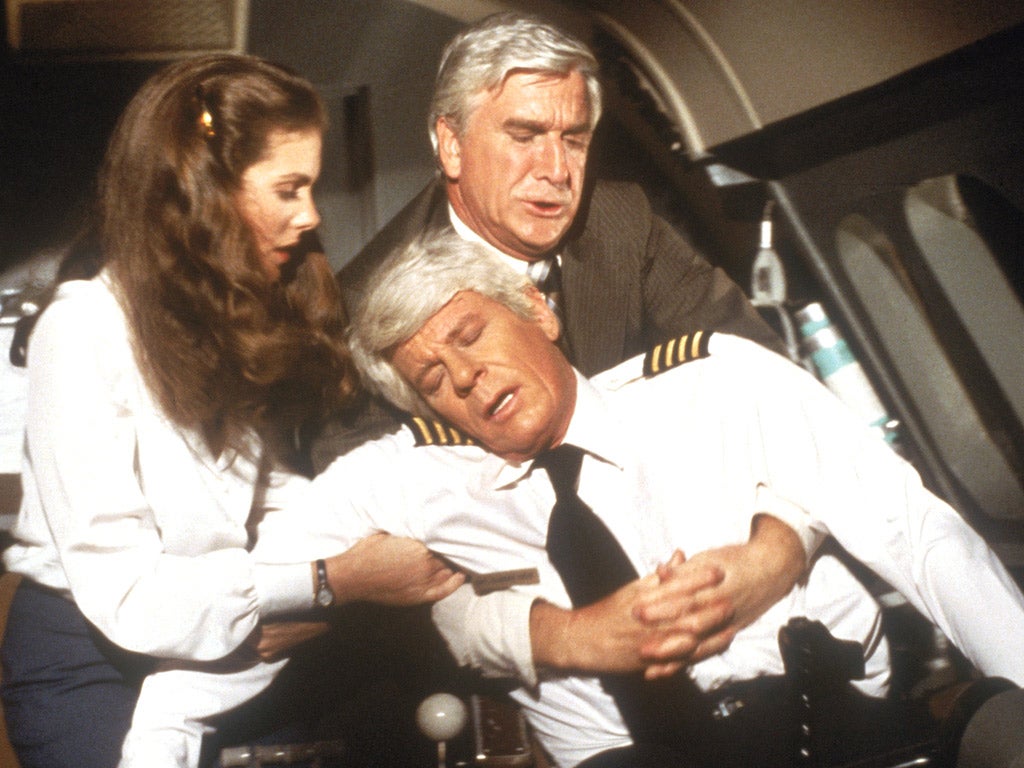Is there a doctor on the plane? Give them frequent-flyer points
Airlines want medics to identify themselves when booking so they can help in emergencies

Your support helps us to tell the story
From reproductive rights to climate change to Big Tech, The Independent is on the ground when the story is developing. Whether it's investigating the financials of Elon Musk's pro-Trump PAC or producing our latest documentary, 'The A Word', which shines a light on the American women fighting for reproductive rights, we know how important it is to parse out the facts from the messaging.
At such a critical moment in US history, we need reporters on the ground. Your donation allows us to keep sending journalists to speak to both sides of the story.
The Independent is trusted by Americans across the entire political spectrum. And unlike many other quality news outlets, we choose not to lock Americans out of our reporting and analysis with paywalls. We believe quality journalism should be available to everyone, paid for by those who can afford it.
Your support makes all the difference.An airline is offering frequent-flyer points to GPs who register their details so that in the event of an emergency they can be easily found.
Turkish Airlines has joined Lufthansa and Austrian Airlines in inviting medical practitioners to register their details in advance. While cabin-crew members receive first-aid training, they are not always comfortable conducting tests or administering drugs.
The carrier’s chief executive, Dr Temel Kotil, told The Independent: “We know where the medical doctors are sitting in advance, and the cabin attendants can call them to help us.”
Many inflight medical “emergencies” are minor conditions that are exacerbated by altitude, stress and fatigue, such as dizziness, fainting and gastric problems. Other conditions may be self-induced, for example by mixing sedatives with alcohol. But possible heart attacks and strokes often require the plane to be diverted – which can prove extremely expensive.
Major airlines have contracts with ground-based medical teams, such as MedAire in Arizona, which provide inflight advice by satellite phone or radio link to 115 airlines. The company says: “Adequately assessing a potentially infirm passenger may prevent an in-flight medical event and a resulting diversion, reducing the risks associated with an unplanned landing”.
A leading travel-medicine specialist welcomed the move. Dr Jane Wilson-Howarth, a GP and author of The Essential Guide to Travel Health, said: “A better attempt at preserving personal privacy would be maintained, and the casualty wouldn’t be trodden underfoot in the stampede to give assistance. Also, travelling medics who are less practised in emergency medicine might feel less guilty about keeping their heads down.”
The offer of frequent-flyer points for undergoing screening also reduces the risk that passengers might misrepresent their medical expertise. Willing volunteers on Lufthansa can register online, but must fax a copy of their medical licence to the airline’s German HQ to be checked.
One disincentive for flying doctors is the paltry pay-out of frequent-flyer points: 5,000 Turkish Airlines miles are insufficient even for a domestic flight upgrade. Dr Wilson-Howarth described the reward as “stingy,” while Turkish Airlines’ boss Dr Kotil conceded: “What we are giving is almost nothing.”
Inflight medical emergencies are becoming more frequent as the population ages. At the same time, the increased capacity of aircraft means there is a higher chance of a flight emergency. When BA starts flying the Airbus A380 later this year, the capacity of its biggest plane will rise by 36 per cent.
A spokesman for BA told The Independent that it had no plans to introduce a similar system, but added: “When we ask for additional help from any doctors or other medical professionals who are travelling onboard, we are always very grateful and will normally provide a letter of thanks.”
Join our commenting forum
Join thought-provoking conversations, follow other Independent readers and see their replies
Comments